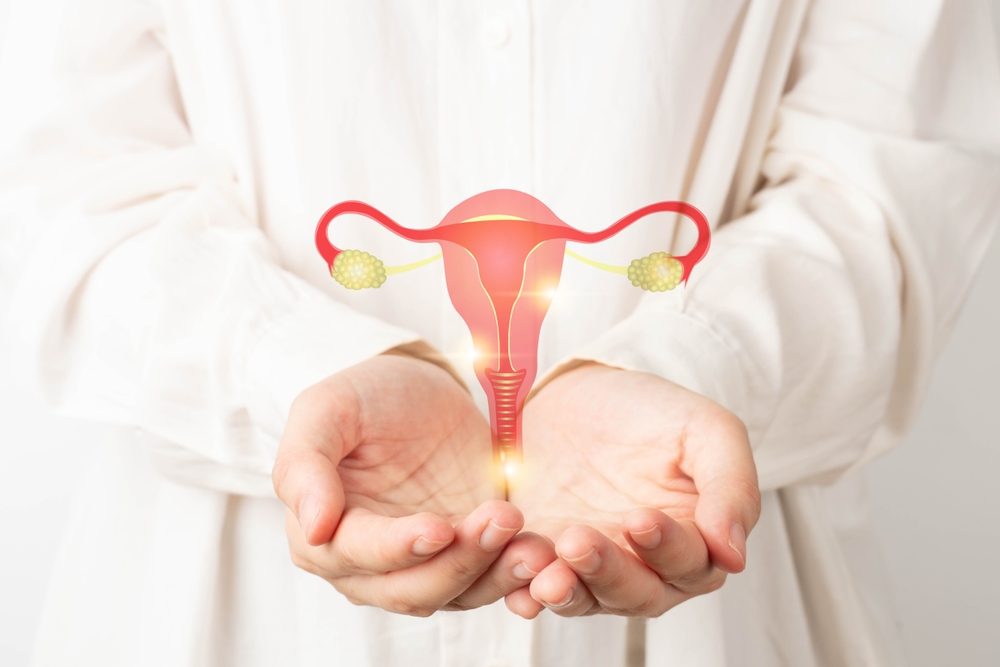Polycystic Ovary Syndrome (PCOS) is a hormonal condition that affects around 1 in 10 women in the UK, although this is thought to be higher as 50% of women with the condition are unaware that they have it or are misdiagnosed. It affects the ovaries which can make getting pregnant tricky, but it’s not impossible. Women with PCOS can increase their chances of getting pregnant by managing the symptoms of their condition, with fertility medication or with treatment such as IVF.
Symptoms of PCOS
PCOS can affect the body in a number of ways. Below are just a few symptoms to help you determine whether you have the condition.
- Irregular periods – Your body doesn’t release eggs regularly.
- Excess androgen – The overproduction of testosterone. Physical signs include excess facial/body hair.
- Polycystic Ovaries – Your ovaries are enlarged and the eggs within them are surrounded by fluid filled sacs called follicles.
Two or more of these symptoms indicate that you may have PCOS. Learn more about the signs and what PCOS is.
Getting Pregnant with PCOS
As mentioned before, it is possible to get pregnant with PCOS. It can complicate matters as those with the condition release fewer eggs, or none at all. Women with PCOS also have insulin resistance which means that the hormone insulin cannot do its job properly and move sugar from the bloodstream to the cells and muscles. This means more insulin is produced, and that blood sugar is higher which damages egg quality and reduces chances of conception.
Improving Fertility Naturally
To conceive and have a healthy pregnancy, it is recommended for all women (especially those with PCOS) to follow the steps below.
- Maintain a healthy weight and BMI (Body Mass Index)
This is something that you can get your doctor to measure. If you are obese, reducing your body weight by 5% can help to improve your chances of getting pregnant and reduce PCOS symptoms.
- Have a healthy diet and exercise
This is important when trying to get pregnant with PCOS as it can help balance blood sugar levels.
- Use an ovulation tracker
These are useful for people with irregular cycles and will help to determine when an egg is present and the best time to conceive. That are not useful where the PCOS is preventing cycles or ovulation entirely.
- Keep an eye on your blood sugar levels
This is especially important for those with PCOS. Blood sugar can have a negative effect on your chance to conceive as high blood sugar can damage eggs and reduce their quality.
In addition, you may require further support. Medications such as Metformin to manage insulin and lower blood sugar, fertility medications and possible fertility treatments like IUI and IVF.
Fertility Medications
Depending on your circumstances, you may be advised to take birth control or clomiphene citrate which helps to balance hormone levels.
IVF
IVF is where an egg and sperm are fused outside of the womb. The fertilised egg, or embryo, is then transferred into the uterus. The full cycle takes around 3 weeks, although its success will depend on a number of factors.
If you would like to learn about your chances of getting pregnant with PCOS and the options available, get in touch with one of our experts for a consultation.

